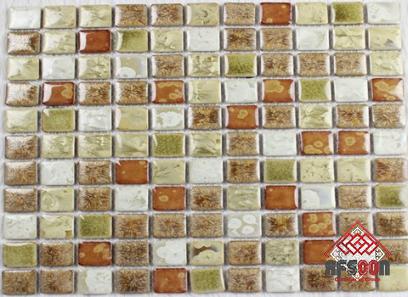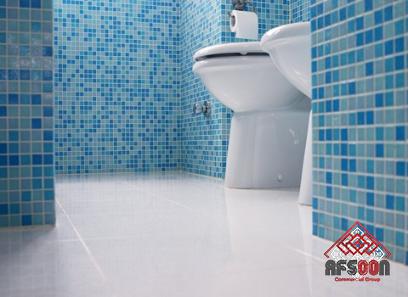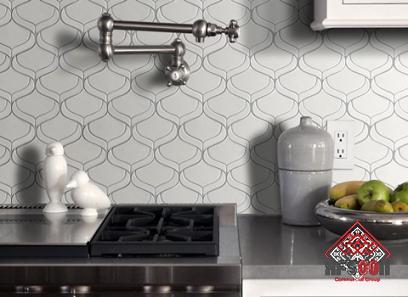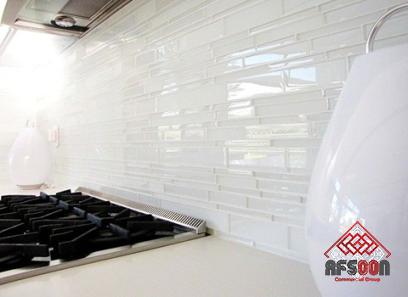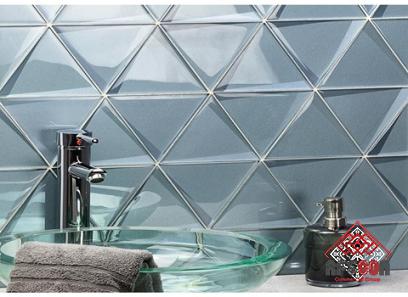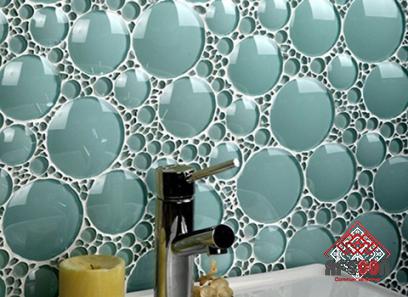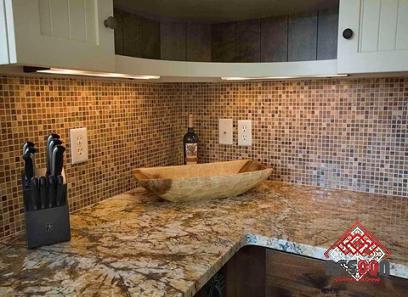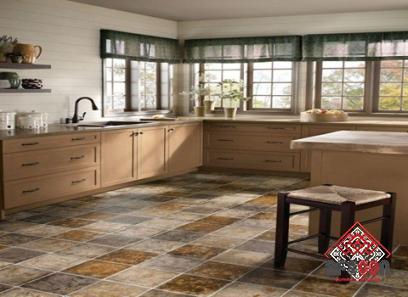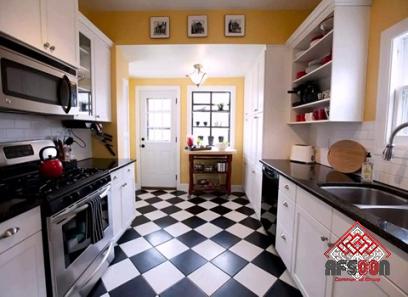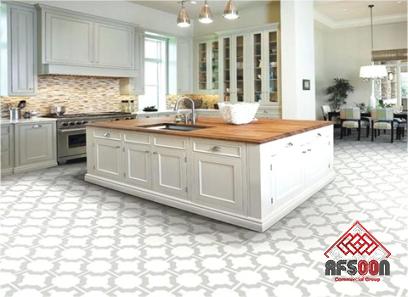flooring tiles types and uses
flooring tiles have different types that based on the type it has different uses
Floor tiles include a variety of natural and man-made hard materials, cut or shaped into uniform flat shapes, which can be used to create elegant and durable floor surfaces
Hard tile generally adds real estate value to any home compared to carpet, laminate, or vinyl floors
But there is an amazing variety of tiles, and not all of them are suitable for use as a floor surface
Discover the eight different types of tiles used for floors and how to tell the difference between wall and floor tiles
Most hard tiles for interior applications have similar installation profiles
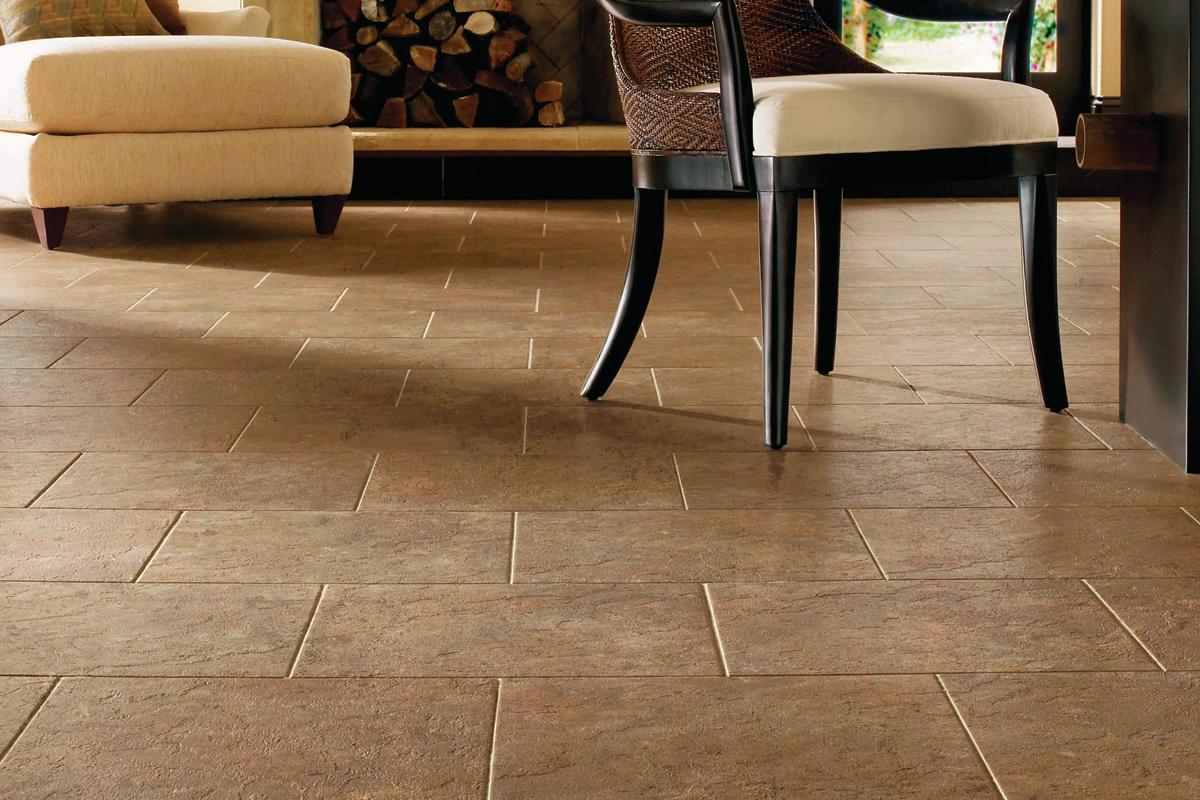
Tiles are usually installed using a thin cement-based adhesive on a cement board backing, which is screwed to the subfloor
The joints between the tiles are then filled with mortar grout to harden and then sealed to prevent water penetration and staining
The process is similar for all tile types, so in theory, most DIYers with moderate to advanced skills and experience can handle the installation of any of these flooring materials
But different tile materials vary widely in thickness and hardness, and many require powerful wet saws to effectively cut chips to fit around boundaries and obstacles
Some tiles are too heavy and may require special preparation or reinforcement of the subfloor
So, while almost any do-it-yourselfer with a bit of experience can successfully install basic tile, terracotta, or even tile, another tile is best left to the professionals
For example, natural stone tiles are very heavy and fragile, and are best installed by professionals experienced in preparing subfloors and using a powerful welt saw to minimize breakage and waste
Depending on your area and the level of preparation required, professional installation can add $3 to $7 per square foot to the total cost of tile flooring
Before going DIY, it’s wise to research each type of tile and make sure your experience and skill level are up to the challenge
ceramic tile
Ideal for: Any floor surface
The term “tile” is sometimes used to describe all types of hard tile materials, but more specifically it refers to a specific type of ceramic tile made by molding clay into a flat shape and firing it at a high temperature to harden it
Typically, the top surface of a tile has a glossy glaze that makes it waterproof, but this glaze can also make the tile slippery underfoot, especially when wet
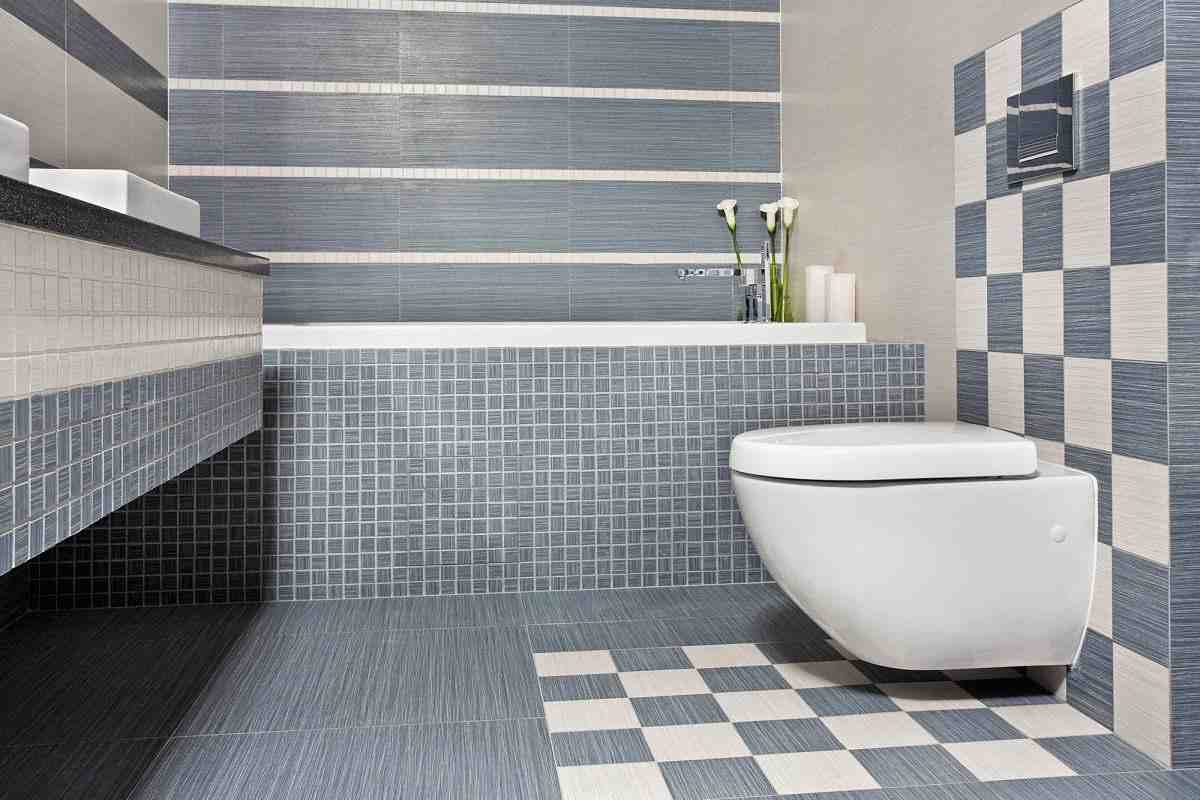
Not all tiles are suitable for use on floors
Many tiles are fairly thin materials that are only suitable for walls
When choosing ceramic floor tiles, choose varieties that are suitable for use on the floor, as well as varieties that have some texture that makes them less slippery
Pay attention to the coefficient of friction (COF), which determines the sliding resistance of the slab
Higher numbers provide better slip resistance
The recommended COF for floors is 0
50 (dry)
Tile prices vary widely, but you can find basic ceramic floor tiles for as little as $1 per square foot (material only) or imported designer tiles for up to $15 per square foot
Professional installation costs can also vary widely, depending on the demolition or preparation of the subfloor required
Many do-it-yourselfers find installing tile to be a great budget-friendly project – the process is time-consuming, but not particularly difficult
The grout line is the most vulnerable area of a tile installation and the hardest to clean
For floors, it makes sense to use large tiles, which will reduce the number of grout lines you need to keep clean and sealed
It is for this reason that the ubiquitous 12 inch square tiles are being replaced by larger 16 inch square tiles or large rectangular tiles
A good quality epoxy grout is a good choice for floor installation
Many people choose to use a darker, contrasting grout on the floor, which is less likely to discolor over time
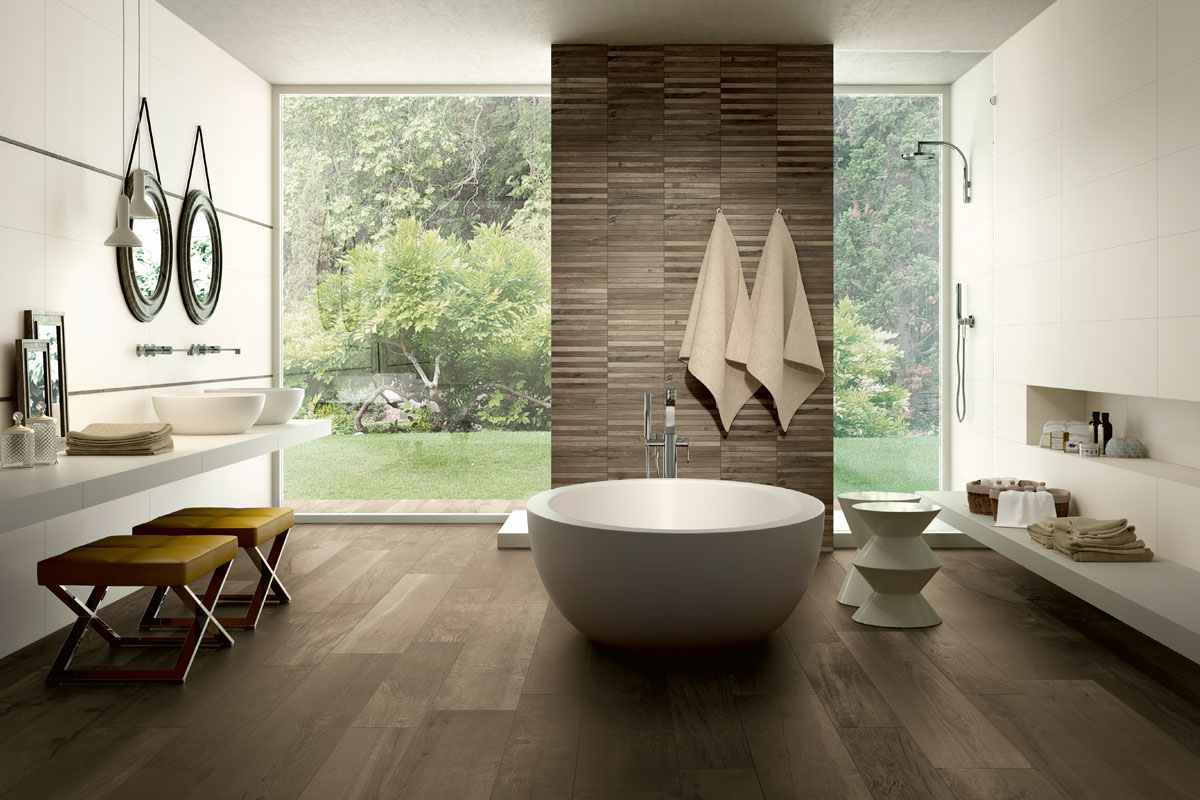
ceramic tile
Ideal for: Any floor looking for a luxurious look
Tile is a special type of tile made of finer clay fired at a higher temperature than standard tiles
Technically, tiles generally have a slower rate of water absorption, making them ideal for bathrooms, kitchens, and showers where waterproofing is essential
Porcelain is also preferred when a high-end, luxurious look is required, as the manufacturing process allows it to take on the appearance of a variety of materials – including natural stone, wood, and even metal
Tiles are generally thicker than standard tiles and most are suitable for floors and walls
Because porcelain is a thicker and harder material, cutting tiles is a more difficult process that requires a wet-powered saw
Still, many do-it-yourselfers can install tile floors themselves
Tiled floors tend to cost a little more than standard tiles, although there is considerable overlap
Prices start at around $2 per square foot for materials alone, and can go up to $20 per square foot or more for special custom designer tiles
mosaic
Ideal for: floor borders, and bathrooms
The term mosaic tile refers to a special type of ceramic or tile that uses small tiles pre-attached to a flexible mesh backing
Individual tiles can be as small as 1/2 x 1/2 inch, but larger mosaics using 1 x 1 to 2 x 2 tiles are more common in flooring applications
The mosaic pieces themselves are usually 1 x 1 foot or larger
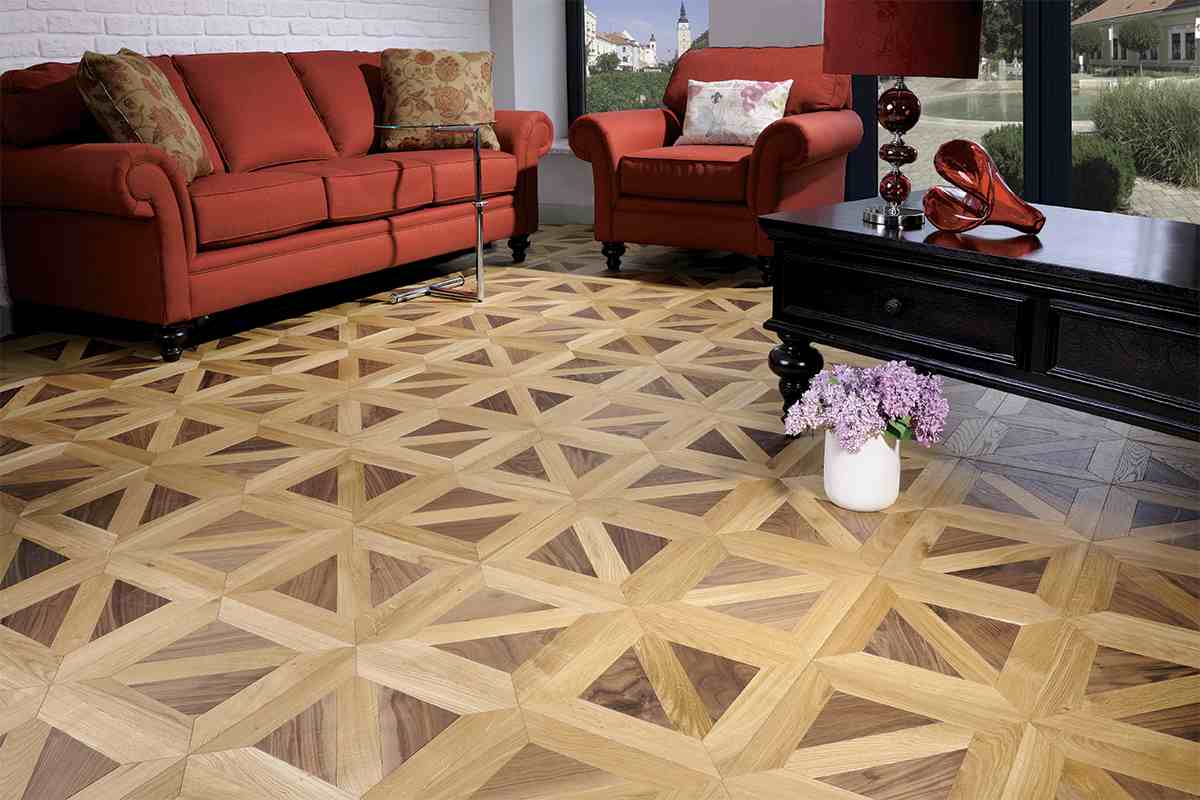
Using mosaic panels offers an easy way to achieve the look of a custom tile installation that was once done by skilled installers setting tiny, individual tiles one by one in a wet mortar base
Mosaic panels are more commonly used for backsplashes and are generally not a good material for the entire floor surface due to the many grout lines
But they are sometimes used in bathrooms, or to create decorative borders or accent areas on floors with larger tiles or tiles
Mosaic panels are installed in much the same way as standard ceramic or tile, and the materials and professional installation costs are similar to ceramic tile
Terracotta tiles
Ideal for: Rustic and natural floors, patios, and solariums
The term terracotta is an Italian term meaning “terracotta”
Made of porous clay, these tiles are rich in iron and are brown to reddish in color
Terracotta tiles are fired at relatively low temperatures (1,000 degrees Fahrenheit) compared to standard ceramic tiles, and they are typically unglazed with a glossy finish
They are often used in homes with Southwestern or Mediterranean decor or architecture, where they have a rustic, natural look
They are also used in porches, patios, and outdoor environments, especially in arid climates
In addition to standard square or rectangular tiles (usually at least 1 x 1 foot), designer medallions and accent tiles are also available
Because they are naturally porous, terracotta tiles can easily stain if not regularly sealed
Terracotta tiles are generally installed using the same method as ceramic and tile
Cutting is usually done with an electric wet saw
DIY installation is totally doable for DIYers with moderate skill and some tiling experience
Terracotta is a relatively inexpensive type of tile due to the relatively simple manufacturing process
Many types cost around $1 per square foot, but there are also hand-painted types that are much more expensive
DIY installation is possible, but most people will want to rent a wet saw to cut
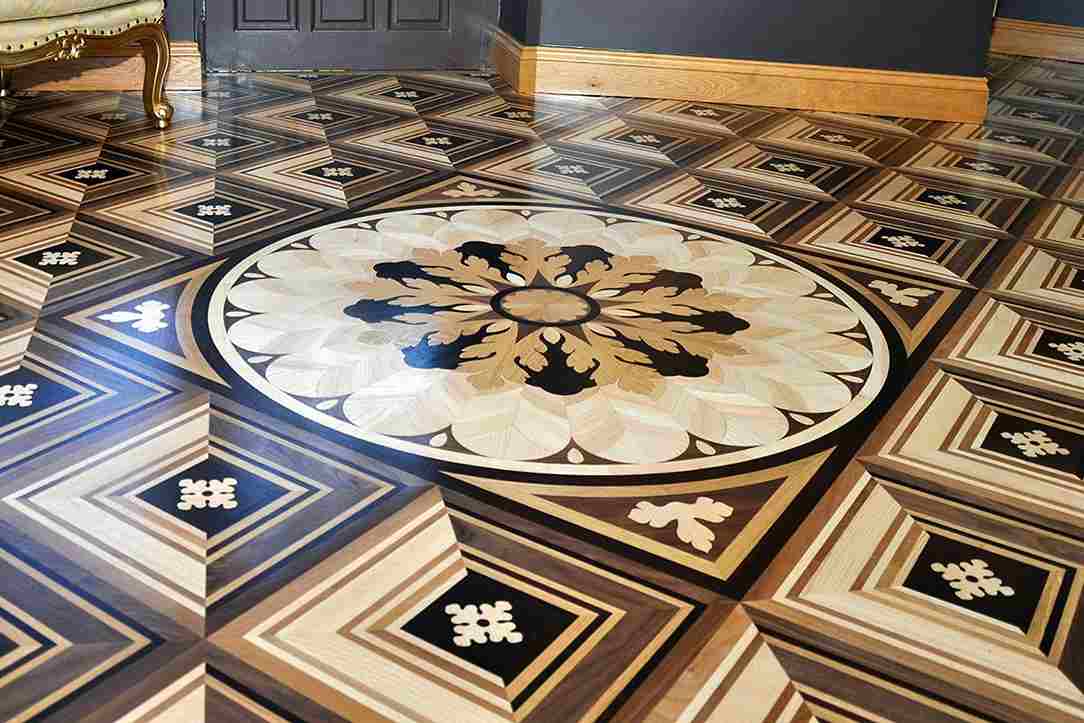
Quarry tile
Ideal for: entrance, terrace, kitchen
Quarry bricks are best considered a more technical version of terracotta
Quarry bricks are not made of pure clay, but are composed of a mixture of clay and powdered rocks such as feldspar and shale, which are molded and then fired at relatively high temperatures to form bricks harder than brick, and more impermeable
Terracotta
With a COF of 0
8 or more, quarry tiles offer excellent slip resistance
Tile sizes range from 3 x 3 to 12 x 12, with rectangular shapes and other geometric shapes also available
While many quarry tiles are brick red in color, beige and gray versions are also available
Terracotta tiles are installed in much the same way as other forms of clay tiles
But since these are thick tiles that contain hard minerals, cutting is more difficult and must be done with a fairly powerful wet saw
Unlike terracotta, quarry tiles generally do not need to be sealed – although adding a sealer coat will not harm them
Quarry tiles are slightly more expensive than terracotta because the manufacturing process is a more complicated pure clay product
Basic red square tiles start at around $3 per square foot
Natural stone tile
Ideal for: floors that require a luxurious look
Another category of floor tiles includes several types of quarried natural stone that can be cut into uniform shapes for use as flooring
Granite, marble, slate, travertine, limestone, and talc are all commonly available as floor tiles, but you’ll usually need to buy from a specialty tile retailer rather than a large home improvement store
Natural stone tiles come in textured forms and are highly polished tiles, but glossy tiles tend to be better for countertops and their smoothness does not present a slip hazard
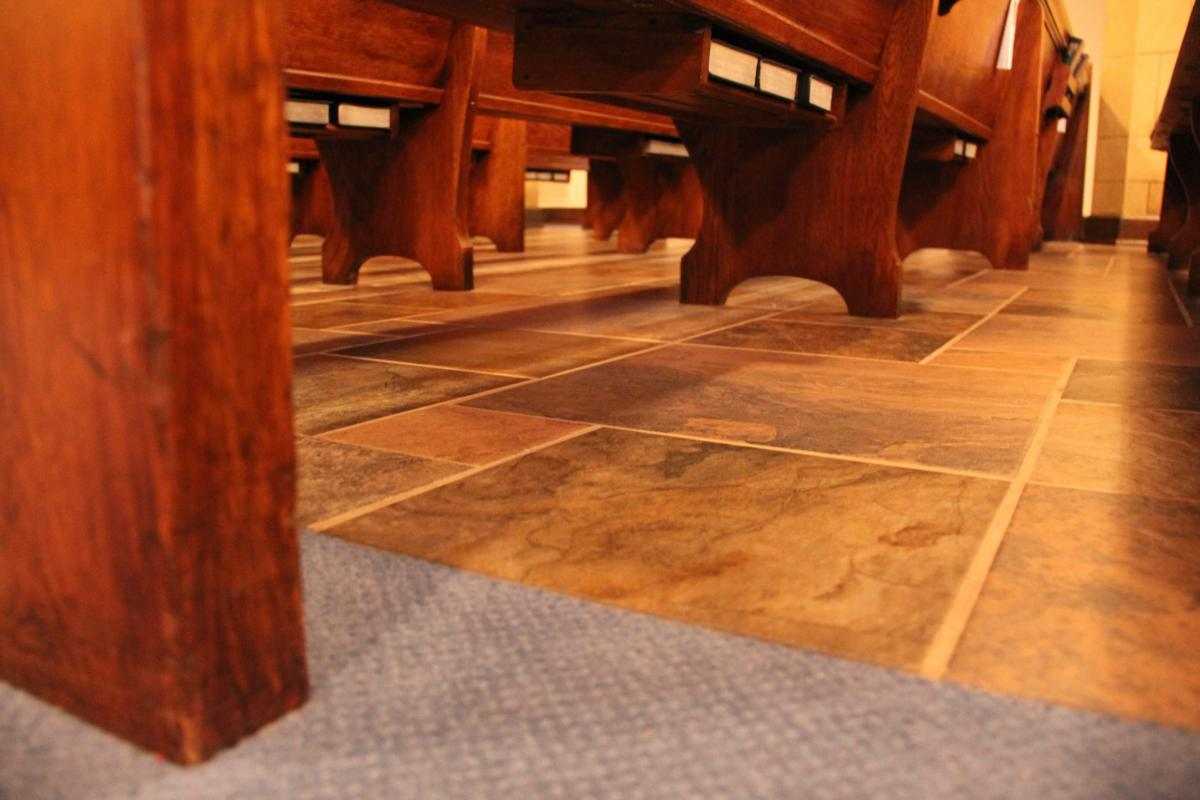
Tile sizes start at approximately 6 x 6, but larger tiles simplify installation and reduce the number of joints
Natural stone tile is a very luxurious floor and generally adds real estate value to my home, but these floors can require a little maintenance
Note that many types of stone are naturally porous and require regular sealing to prevent water penetration and staining
Natural stone tiles are cut products with straightened edges (sharp saw)
This can make them a little uncomfortable under their feet, especially bare feet
Careful grouting is necessary to keep the grout joints flush with the tile surface and to prevent them from accumulating dirt
These are quite expensive floor tiles
At the lower end of the scale, basic travertine, granite, and slate tiles start at around $5 per square foot
At the high end, marble tiles start at around $10 per square foot, but can go up to $30 or more
Additionally, natural stone tiles are not very DIY-friendly products and almost always require professional installation
This will add $3 to $7 per square foot
concrete pavers
Ideal for: Modern decoration
A fairly new class of hard tile flooring products includes pure concrete pavers, made from Portland cement and fine aggregate, often colored and textured like quarry tile
Traditionally, they are more commonly used on outdoor walkways, pool decks, and patios; indoors, they are often limited to locker rooms, boiler rooms, work areas, and other areas where aesthetics are less of a concern
However, concrete pavers now come in forms more suitable for general interior use, especially in homes with modern industrial architecture and finishes
They are relatively thick tiles (3/8 to 1/2 inch thick), ranging in size from 4 x 4 to 12 x 12, and are also available in rectangular shapes
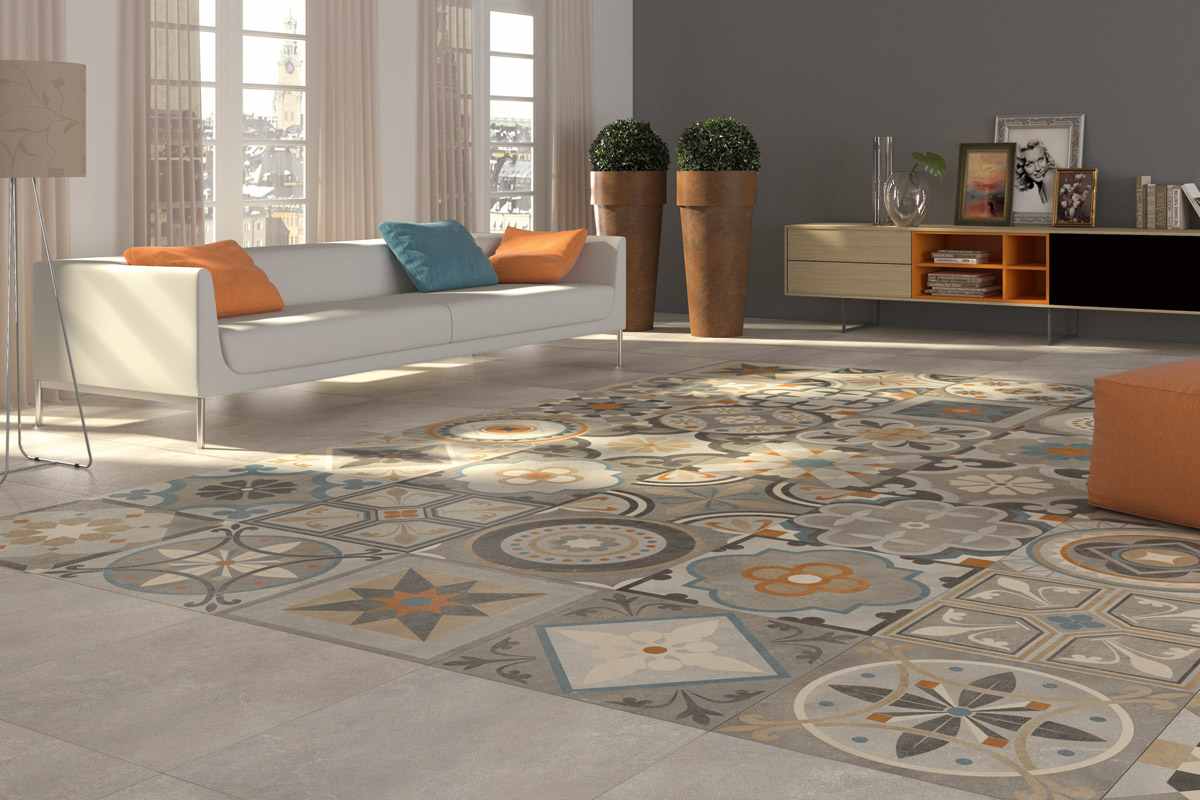
Look for a COF rating of 0
60 or higher, which will keep those tiles safe underfoot
Cement pavers are difficult to cut, so they are usually installed by professionals
Cement pavers are one of the cheapest tiles, starting at around $2 per square foot for basic tiles, but can be more expensive for specialty tiles with unique colors
Encaustic Cement Tiles
Ideal for: Designers looking for high traffic entrances, borders, and accent surfaces
So-called encaustic cement tiles are very similar to glazed ceramic or porcelain tiles, but instead of being clay-based, they are made using a mixture of Portland cement, sand, pigments, and mineral powders which are poured into molds and then made hard
They will not burn at high temperatures
They are generally very decorative tiles with a striking pattern, with excellent durability and resistance to water and stains
Patterns and colors are not created by glazed layers like ceramics or tiles, but by the pigments and minerals that are combined when the tiles are formed
These tend to be one of the more expensive tiles due to the rather complicated manufacturing process, but the unique, well-crafted design can be a good choice for accent surfaces like stair risers
They are very hard tiles that hold up well in high traffic areas such as entryways and hallways
Cement tiles start at around $5 per square foot, but you can easily pay $15 or more per square foot, even at major home improvement centers
These tiles are not difficult for DIYers to install, but since concrete is a very hard material, these tiles should be cut with a powerful wet saw

